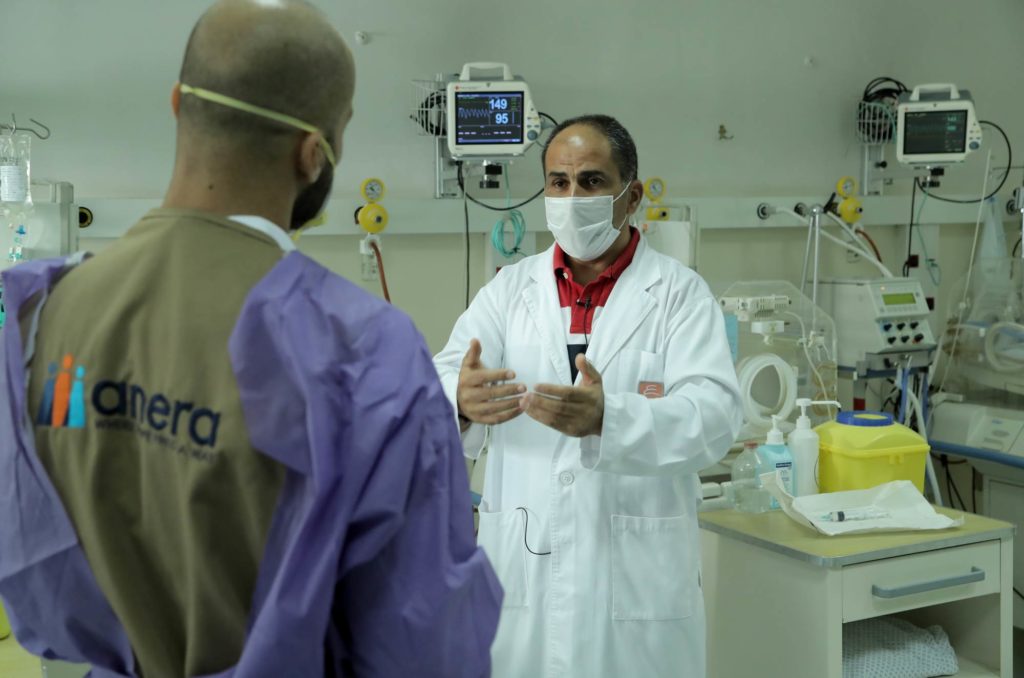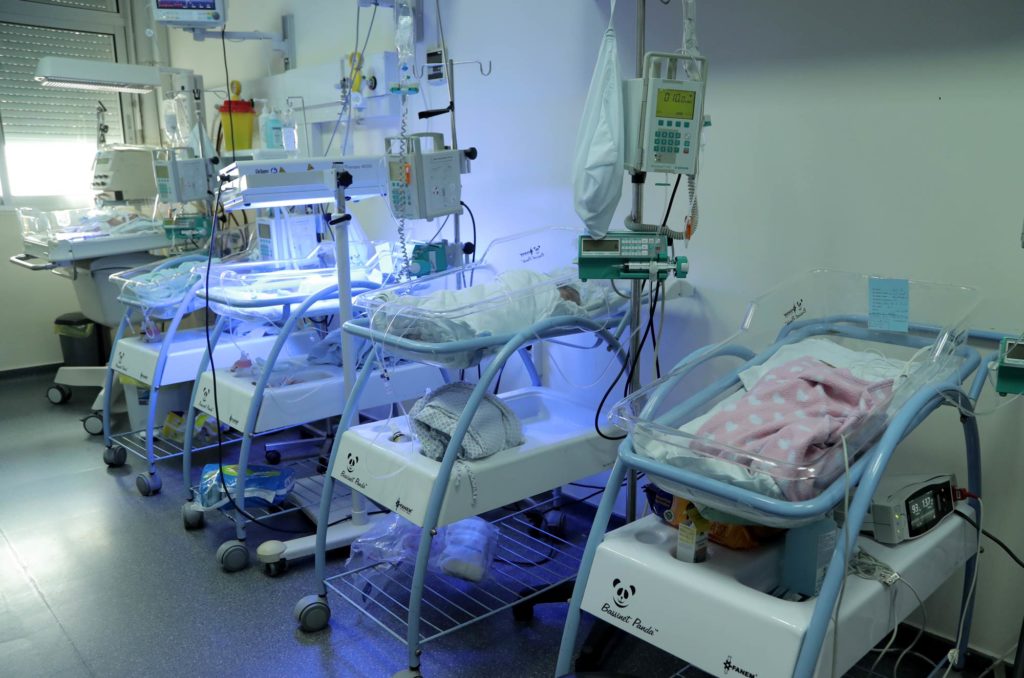HEALTH
Donated Medicine Helps Infants in Lebanon Breath
Oct, 2020
Donated medicine is essential for neonatal healthcare in Lebanon
The Tripoli Governmental Hospital is the largest hospital in northern Lebanon, the poorest region of the country. It is the only hospital in the region capable of providing specialized care for infants.
Breathing difficulties are one of the common problems confronting their youngest patients. Healthy lungs produce a surfactant essential to breathing. Premature babies are often unable to produce this on their own and can face serious illness or death unless they receive prompt treatment.
Physicians help babies breath by putting them on ventilators and by introducing a surfactant through a tube into the lungs. Thanks to a recent medical donation from Americares, Anera has delivered beractant, a surfactant medicine, to the Tripoli Governmental Hospital.
Firas Hoblos is a pediatrician and head of the neonatal resuscitation unit at the hospital. He says the donated medicine is essential for neonatal healthcare in Lebanon.


“The support of organizations such as Americares and Anera is of utmost importance. [Beractant] is an expensive medication that is crucial for the survival of most premature infants.”


Untreated, premature babies risk cerebral bleeding and loss of sight, among many other issues.
The hospital expects its need for beractant will increase, as it is seeing a growing number of babies with breathing difficulties. The facility lacks enough ventilators, so the hospital is increasingly reliant upon beractant as its primary tool for treating patients with serious breathing difficulties. Most of the ventilators it does have are old. Repair is expensive and new ventilators currently cost over 4 million Lebanese lira, which is unaffordable for the hospital. Fortunately, beractant typically permits the baby to breath on its own without the assistance of a ventilator.


Among the cascade of crises facing Lebanon, medicines are now in short supply. Like other imports, medicines are increasingly expensive as the value of the lira plummets. Compounding the problem, Lebanon’s central bank has announced that it will end subsidies for medicines next year. This has caused a rush to stockpile medications before the prices increase, creating further scarcity.
Dr. Naser Adra, director of the Tripoli Governmental Hospital, emphasizes the importance of collaboration to navigate these challenges. His hospital, which is a key anchor for health care in the region, particularly for advanced services like orthopedic surgery, X-rays and COVID- 19 care, was already financially struggling last year. Now, with the shortage of medications, the increase in prices for all supplies and the spike in COVID-19 cases in Tripoli, he fears that the hospital will be forced to reduce the number of patients it accepts.


